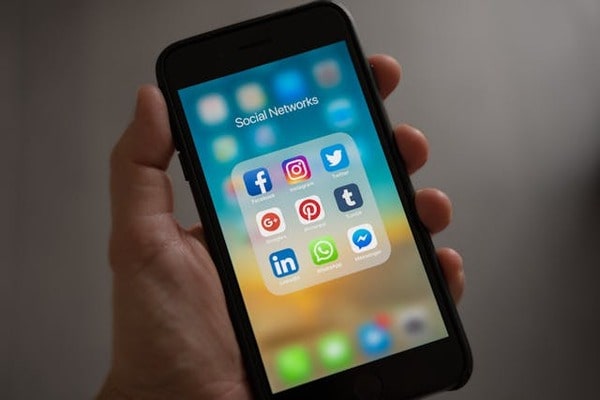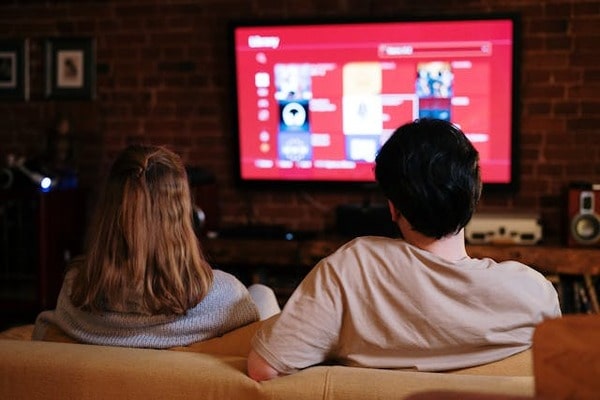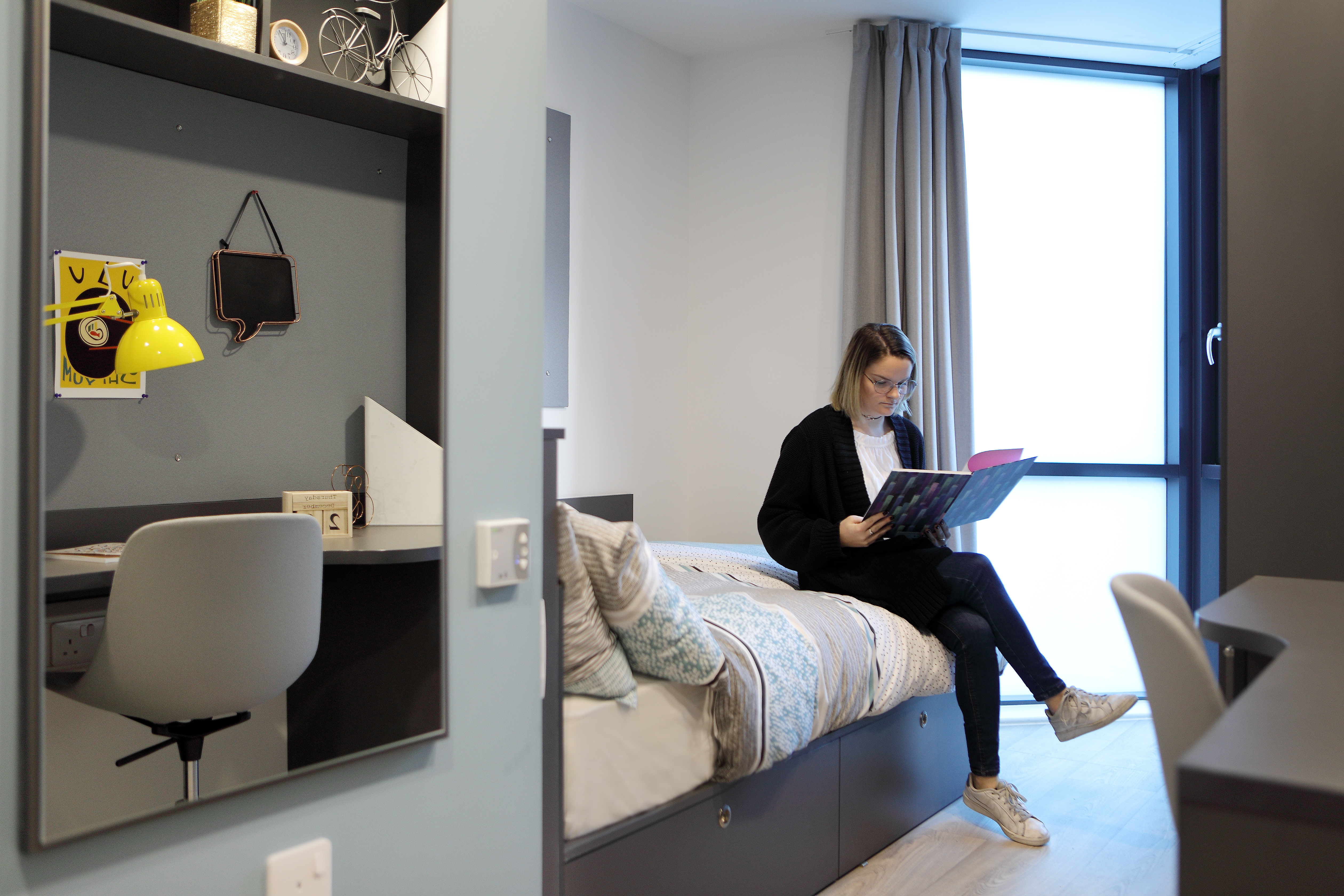Am I addicted to my phone?
Millions of us use phones as part of our everyday lives. We chat, message, scroll, watch, Google, click, like, and listen our way through the day using one tiny handset. Some of us may feel that our phones are more than a way to stay connected with others and have become part of who we are.
But in the process are we becoming disconnected from ourselves?
My phone habit
I’ve noticed recently how my phone is becoming an increasing part of my life, and I’ll be honest, I’m not sure if I like it. I seem to use it for everything: staying in touch with mates, random social media scrolling, and even using it to search the answer to basically any question I ever have! And while in some ways, using a phone makes for an easier life - it’s not just what I’m using it for that makes things problematic. It’s when I’m using it.
- I reach for it as soon as I wake up and mindlessly scroll through messages, and my socials.
- I always use it on public transport.
- I even take it in the bathroom with me to listen to music while I’m in the shower!
- I use it before bed to watch TV, or to mindlessly scroll again, and even to search up something that might have popped into my mind if I wake up at night.
Using the word addiction doesn't sit right with me, I think maybe because it feels so different to other addictions like drugs, alcohol, gambling, and other addictions that I view as potentially dangerous or risky. But actually, perhaps it’s also the fact that if I talk about it as an addiction, then I’d feel like I have to do something about it.

Asking a professional
I asked Dr. Hannah Wilson - Clinical Psychology Lead at Kooth the question, “Can we become addicted to our phones?”. This is what she had to say.
“We can develop what might be considered an 'addiction' to almost anything. Typically, it will be something that gives us a sense of 'reward' (e.g. a pleasant feeling, or a way of avoiding unpleasant feelings), and therefore we continue to do it/do more of it, even if it impacts our day-to-day lives. This can absolutely happen with mobile phones. We have naturally become more reliant on phones as a way of managing our lives and staying connected with others; they are an incredible source of information. At the same time, we might start to find ourselves scrolling aimlessly, reaching for our phone automatically, feeling anxious if we are out of signal and can't reply to messages straight away, being distracted by our phone even when spending time with friends or family, and experiencing physical difficulties such as eye strain or repetitive strain injury.”
Changing my habits
Dr. Wilson’s response really got me thinking. My phone habits have definitely gradually crept up on me. I’ve gone from not really being overly bothered by my phone, to using it more and more. I have more apps, more group chats, email accounts, and social media accounts than ever before. All managed through my phone.
I want to change this habit, for so many reasons, including:
- I want to use my time better, rather than wasting it on scrolling mindlessly on things that don’t really interest me.
- I want to give my full focus to people I care about rather than reaching for my phone while I’m mid conversation.
- I want to be able to watch TV without being distracted by my phone beeping, or reaching for it during ad breaks out of habit.
- I want to be able to drift back off to sleep without having an urge to search up some fact, or piece of information that can wait until morning.
- I want to be able to notice my surroundings on public transport rather than being focused on my phone

My five day challenges
The reality of my phone use is really clear to see. I’m currently using it for multiple hours a day. That has really shocked me. Nothing I do on my phone is that important, surely? In fact, that isn’t even a question, it’s just a fact. Nothing at all is that important.
I’ve set myself a little challenge: I want to reduce my mobile phone use. To do this, I’m going to set myself some mini challenges every day for five days, just to see how I get on. I’m not putting any pressure on myself - it’s just something I want to do to change my habits, raise my awareness, and most importantly to create a healthier relationship with my phone.
Day one - Leave my phone out of reach
My phone is usually in my hand, pocket or bag. It’s always within reach, making it easy for me to have a quick check. I don’t need to do this, so today, my mini challenge is to put it just out of reach while I’m doing other stuff.
How I got on
As checking my phone on a regular basis has become such a habit, suddenly not doing that was actually a much bigger challenge than I thought. It was really hard at first and I felt myself really wanting to just check for important messages or calls.
Finding a middle ground
I actually did this all week in the end as I found it so beneficial. I now give myself 15 minutes in the morning to check my phone, and then I put it out of reach but where I can still hear it in case there are any calls I need to answer. I also gave myself 10 minutes to check it at lunch time. This is obviously much easier if you’re not actually allowed to use your phone during the day, but for me I had to think a bit more about it.
Day two - Watch a whole film uninterrupted
Not being able to watch a film without being distracted is something my family has commented on. I know it irritates them, so this challenge was a personal one for me, because I really want to do something with people I care about totally uninterrupted.
How I got on
This was really good actually. I felt able to concentrate and able to lose myself in the film rather than on my phone for a change. I did have to fight the urge to just “search who that actor was” or check what the film was about. But even that process increased my awareness of my phone behaviour and how it gets in the way of just watching a film at home. Just sitting and enjoying something, whether a film, book, or song, is something that has increasingly become an interrupted activity for me, and I’d really like to change that. Definitely a challenge that I’d do again.

Day three - Travel on public transport without using my phone
I usually travel with my head down and focused on my phone. I had a short bus journey to make on day three, so this was a perfect opportunity to see if I could do it without my usual companion.
How I got on
I noticed things I wouldn’t usually. I noticed someone smiling at me. I noticed someone giving up their seat for an elderly passenger. I noticed when it started raining, and even someone waving from their garden as the bus went past. It made me think about all the other things I might notice if I did this more often.
Full disclosure
Okay, so the return journey wasn’t quite so successful. I posted on my socials, and caught up with some messages. But, perhaps this is part of some middle ground for the future. Having a part of the journey that’s phone free? It’s definitely something I’d like to try again.

Day four - Not use my phone before bed
This was a big one for me as for as long as I can remember, I’ve used my phone before going to sleep. I wonder how my phone has impacted my sleep, as I often take ages to get to sleep and wake up during the night.
How I got on
It was tough, and I actually found I couldn’t get to sleep because I was thinking about things I hadn’t managed to do during the day. I had put my phone out of reach, but I felt very tempted to grab it so I could send one last email, reply to that one person, and check that one thing online. This is maybe an indication that my phone habit really does need to change. I’m also not expecting things to change immediately, but how I felt during this exercise definitely made me want to have a healthier relationship with my phone. I’m going to attempt to do this again, maybe for a week or so, to see how I get on.

Day five - Leave my phone at home all day
I lost my phone recently at home, and felt totally panicked and distracted all day. I found it eventually, but it made me realise just how much I am reliant on technology. This is a challenge I set myself because I wanted to see how I would cope without my trusty handset without the sinking feeling I got when it was actually lost. I was leaving it home on purpose, something I rarely do.
How I got on
I was especially worried about this one because I have never been not contactable. So I chose a day that I was out with my friends, to reduce any feelings of worry or anxiety. We went to the park and just hung out. It was really nice because there were no distractions, so we had good chats, and played with a ball. It was fun, and I was really with them, rather than half with them. I actually have no problem not having my phone on me all the time when I’m on holiday, so having a middle ground and doing it on the weekends and on purpose when I really don’t need to be contacted feels like something I’d like to do more of.
What I’ve learned
My week of healthier phone habit challenges has been really helpful for me. I’ve learned I don’t NEED my phone as often as I think I do. And I’ve learned that I really do miss out on other things when I have such an unhealthy relationship with it. I’ve also realised that there is some middle ground to be found.
There are lots of positives to having a phone that I do find useful - managing life admin from one device, being contactable in case of an emergency, and having a place to store my music. But I know that finding more of a balance is important for me so I don’t become consumed by this little box of information. I want to enjoy other parts of life, and I want to take in my surroundings, and really concentrate on the people in my world, and more importantly on myself.

